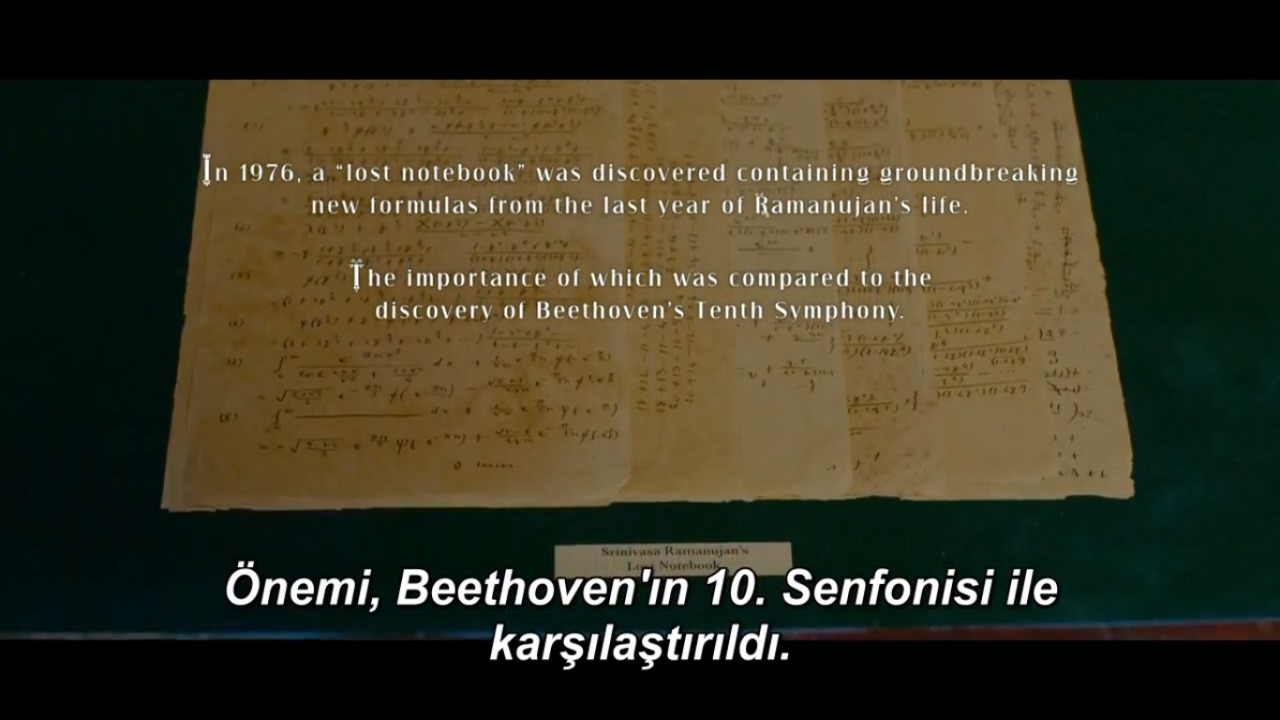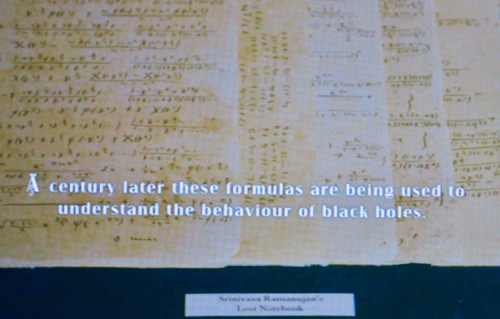Asked to name fine arts, most people would name Music, Poetry, Painting and similar arts. Only those who have studied it and, better, practiced it would name Pure Mathematics as a Fine Art. But it is that and nothing comes close to it in its amazing beauty, its grandeur & the hold it has on people blessed with the ability to practice it.
Ask musicians why they sing; most probably they will tell you because they have to. Same for painters & other artists. Magic Johnson once said he would have played basketball even if it didn’t pay anything.
There was once a great artist who in his spare time came up with equations & formulas while he tried to find a paying job that could feed his wife & mother. He filled pages & pages of a notebook with equations that came naturally to him. When asked why he chose to do that, he said he just had to do it.
Music, Poetry, Painting are fine arts that, as great artists have told us, bring them closer to God. What they express in their art does come within them, from what the Creator put in them. But these arts do not explain the mysteries of Creator’s nature; they merely express what they feel. One problem is that these fine arts are finite. Musical composition is essentially finite; so is painting., sculpture or poetry. But God is NOT finite. If God were finite, people would have classified & thoroughly investigated God by now.
God is infinite, so infinite that we cannot even conceive the enormous infinity of God. That brings us back to Pure Mathematics because it is the only Art that explores infinity. Everything Pure Mathematics finds already exists and has existed for ever. All it needs to be brought forth is a unique explorer to find it. This was best expressed in the story A Man Who Knew Infinity by the character of G. H. Hardy, a noted British Mathematician at Trinity College, Cambridge in early 20 the century:
[embedyt] http://www.youtube.com/watch?v=58LbeRYSH8A[/embedyt]
In nominating his colleague & partner to the position of a Fellow of the Royal Society, Hardy said (at 00:45 of the clip above):
- “An equation for him had no meaning unless it expressed a thought of God …perhaps he is right. For is that not exactly our justification for Pure Mathematics; We are explorers of infinity in the pursuit of absolute perfection; we do not invent these formulae; they already exist and lie in wait for only the very brightest of minds like … ever to divine and prove”
The above phrase “to divine” is very apt. Because some of the greatest Mathematicians have said the same, that their great ideas came to them like a bolt of instant clarity. And in the story we talk about, the “to divine” phrase is the best description of how Ramanujan (Ram + Anujan = younger brother of Ram) conceived of his equations & formulae. He had no formal training in Mathematics; he did not even know how to prove a theorem. He was blessed with an amazing genius that led him to divine patterns that no one else could see (first 18 seconds of the trailer below).
[embedyt] http://www.youtube.com/watch?v=oXGm9Vlfx4w[/embedyt]
Nobody near him could understand the work he had done or the notebook he had filled with his equations & formulae. Finally, he sent nine pages of his work to G.H. Hardy at Cambridge. Hardy wasn’t sure whether the work was real or a fraud. Finally he realized that Ramanujan’s theorems must be true because must be true because, “if they were not true, no one would have the imagination to invent them“.
Hardy invited Ramanujan to Trinity College, Cambridge and thus began a five year partnership that delivered amazing sets of results to the world. Ramanujan returned to India in 1919 because of ill health and died in 1920 at the age of 1920. He left behind a 3rd notebook that was discovered in 1976.
The genius of the same work compared to Beethoven’s Tenth Symphony & used to understand behavior of Black Holes – Doesn’t that show that Mathematics is divined as the most exalted of Fine Arts?
Watch this film The Man Who Knew Infinity (on Netflix or on Youtube). It is a film that does justice to both the human side of Ramanujan & his family as well as to his genius. It is an exquisite story exquisitely told.
Editor’s PS:
1.Listen to Freeman Dyson, the renowned American-British Physicist & Mathematician speak of Ramanujan’s work in the short clip below. He makes an interesting point near the end saying “most of Physics is ephemeral but the Mathematics is permanent“
[embedyt] http://www.youtube.com/watch?v=lHSrYcPPm8Q[/embedyt]
2.Freeman Dyson talks about what Gauss did enabled Riemann to study Mathematics of Space & how that was the framework Einstein needed for his General Theory of Relativity. He also points out that Lie Groups invented ended up 100 years later as the perfect tool to study Particle Physics. And he says “The world has deeply built into it Mathematical Structures; there seems to be a kind of rule that anything Mathematicians can invent, God can somehow use”. The short clip below is titled “God Appears to be a Mathematician”.
[embedyt] http://www.youtube.com/watch?v=ESyqh1M_kf0[/embedyt]
Send your feedback to editor@macroviewpoints.com Or @MacroViewpoints on Twitter

